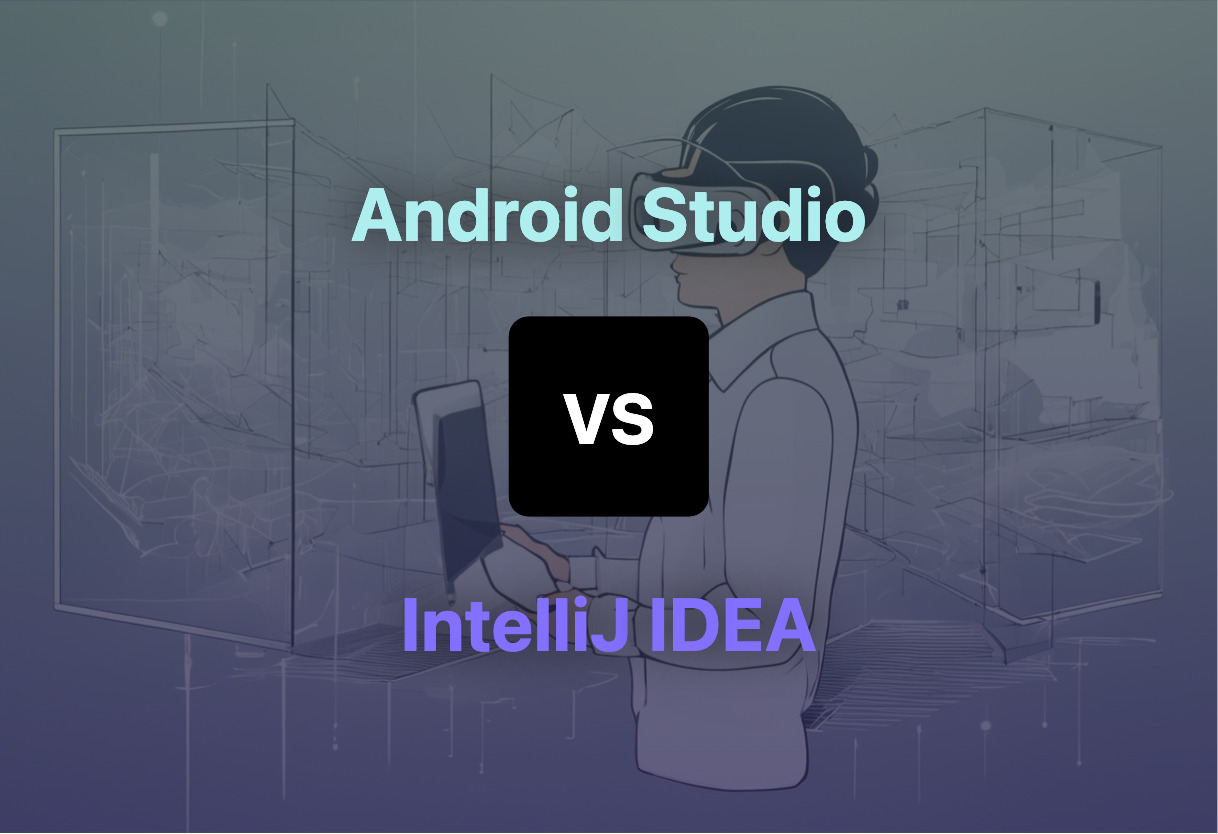
Introduction to Android Studio and IntelliJ IDEA
Android Studio
Android Studio serves as the official Integrated Development Environment (IDE) for Android app development. Built on the IntelliJ IDEA platform, it offers a comprehensive set of tools specifically designed for Android development, making it a preferred choice for many developers.
IntelliJ IDEA
IntelliJ IDEA, developed by JetBrains, is a general-purpose IDE supporting a wide range of programming languages and frameworks. Known for its ergonomic design and intelligent coding assistance, it can be used for Android development with plugins, though it lacks some specialized features found in Android Studio.
Key Differences Between Android Studio and IntelliJ IDEA
Platform Compatibility
- Android Studio: Designed specifically for Android applications, it provides seamless integration with Android SDKs and tools. Features include real-time code analysis, memory and CPU profiling, and support for debugging across multiple devices.
- IntelliJ IDEA: A general-purpose IDE supporting multiple programming languages and frameworks. While usable for Android development with plugins, its support may not be as comprehensive or user-friendly.
User Interface and Features
- Android Studio: Tailored to Android developers, it offers features like a visual layout editor, APK analyzer, and support for Android Virtual Device (AVD) manager.
- IntelliJ IDEA: A more generic IDE with a user interface supporting various programming languages and frameworks, lacking some Android-specific features.
Code Completion and Analysis
- Android Studio: Provides powerful code completion and analysis tools designed for Android development, offering suggestions and auto-completion for Android APIs, resources, and framework-specific classes.
- IntelliJ IDEA: Offers code completion and analysis but may not be as tailored to Android development.
Gradle Integration
- Android Studio: Seamlessly integrates with Gradle, the recommended build system for Android projects, providing a dedicated Gradle view and supporting Gradle-based tasks like building, running tests, and generating signed APKs.
- IntelliJ IDEA: Supports Gradle, though its integration may not be as seamless and straightforward.
Emulator and Device Support
- Android Studio: Includes a built-in Android emulator and easy configuration and management of Android Virtual Devices (AVDs), allowing testing on virtual devices with different screen sizes, resolutions, and Android versions.
- IntelliJ IDEA: Can work with Android emulators and physical devices but may not offer as comprehensive or user-friendly support.
Plugins and Extensions
- Android Studio: Offers a wide range of plugins and extensions specifically designed for Android development, enhancing the development workflow and productivity.
- IntelliJ IDEA: Boasts a larger ecosystem of plugins and extensions covering a wider range of programming languages and frameworks beyond Android development.
Ease of Setup and Configuration
- Android Studio: Provides a more straightforward setup and configuration process for Android projects, being a comprehensive IDE tailored for Android development.
- IntelliJ IDEA: May require additional configurations and setup to work seamlessly with Android projects, being a generic IDE.
Pros and Cons of Each IDE
Pros of Android Studio
-
Specialization in Android Development
- Specifically designed for Android app development, making it the preferred choice for many developers.
- Provides a comprehensive set of tools and features tailored to Android developers.
-
Seamless Integration with Android SDKs
- Integrates seamlessly with Android SDKs and tools, simplifying development, testing, and debugging.
-
Visual Layout Editor
- Allows developers to design user interfaces visually, aiding in creating complex layouts.
-
APK Analyzer
- Helps analyze and optimize APK files, crucial for performance and security.
-
Built-in Emulator
- Enables testing on virtual devices with different screen sizes, resolutions, and Android versions.
-
Google Cloud Services Integration
- Facilitates deployment and management of applications in the cloud.
Cons of Android Studio
-
Limited Platform Support
- Specifically designed for Android app development, lacking support for other platforms like web development or server-side applications.
-
Not Free for Enterprise Use
- Free for personal use but requires a license for enterprise use, which can be costly for large organizations.
Pros of IntelliJ IDEA
-
General-Purpose IDE
- Supports multiple programming languages and frameworks, making it versatile for various development tasks.
-
Ergonomic Design and Intelligent Coding Assistance
- Known for its ergonomic design and intelligent coding assistance, significantly improving developer productivity.
-
Wide Range of Plugins and Extensions
- Boasts a large ecosystem of plugins and extensions covering a wide range of programming languages and frameworks beyond Android development.
-
Community Edition Available
- A free community edition supports many functionalities but lacks some advanced features available in the Ultimate edition.
-
Cross-Platform Development Support
- Supports cross-platform development, allowing work on projects for multiple platforms using various plugins and extensions.
Cons of IntelliJ IDEA
-
Complexity
- Can be complex and intimidating for beginners, especially compared to the more straightforward setup of Android Studio.
-
Cost for Ultimate Edition
- The Ultimate edition requires a license, which can be expensive for some developers.
-
Limited Android-Specific Features
- Lacks some specialized features found in Android Studio, such as APK analysis support.
Choosing the Right Tool
Development Focus
If exclusively focused on Android app development, Android Studio is likely the better choice due to its specialized features and seamless integration with Android SDKs and tools.
Cross-Platform Development
For projects involving multiple platforms, IntelliJ IDEA might be more suitable due to its wide range of plugins and extensions supporting various programming languages and frameworks.
Cost Considerations
Budget-conscious developers may prefer the community edition of IntelliJ IDEA, available for free, though it lacks some advanced features found in the Ultimate edition.
Ease of Use
New developers or those preferring a more straightforward setup process might find Android Studio easier to use due to its tailored user interface for Android developers.
